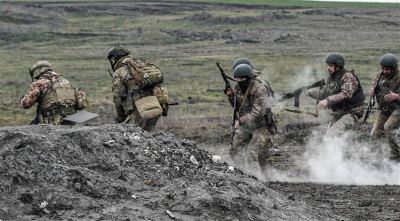NATO Soldiers Are fighting in Ukraine as Mercenaries: Austrian Colonel

All Global Research articles can be read in 51 languages by activating the Translate Website button below the author’s name.
To receive Global Research’s Daily Newsletter (selected articles), click here.
Follow us on Instagram and Twitter and subscribe to our Telegram Channel. Feel free to repost and share widely Global Research articles.
***
According to Colonel Markus Reisner, the military strategist of the Austrian Ministry of Defence, Ukraine does not need NATO soldiers, as they are already there on the frontlines as mercenaries.
In a video posted on the Intel republic Telegram channel, the Austrian can be seen and heard giving his view on the situation. Reisner’s remark came in response to a question posed during a press conference at the AIES Institute. One of the journalists asked him who would be managing the proposed transfer of tanks to Ukraine – NATO servicemen or Ukrainians.
Reisner replied that if the military from Austria or NATO countries retired from service and became mercenaries, then they could no longer be considered representatives of the armies of their states.
He explained that the serviceman takes off his uniform, signs a contract and goes to Ukraine – now he is not a soldier, for example, of the Austrian armed forces, but a contract mercenary. In his opinion, there are a large number of mercenaries on the territory of Ukraine and not soldiers of the alliance.
According to him, most of the conversations recorded by intelligence networks were in English with various dialects, along with some in the German, French, Italian and Polish languages.
*
Note to readers: Please click the share buttons above. Follow us on Instagram and Twitter and subscribe to our Telegram Channel. Feel free to repost and share widely Global Research articles.
Featured image: Image of Russian troops in Ukraine. Credit: Ukraine MoD/Facebook

